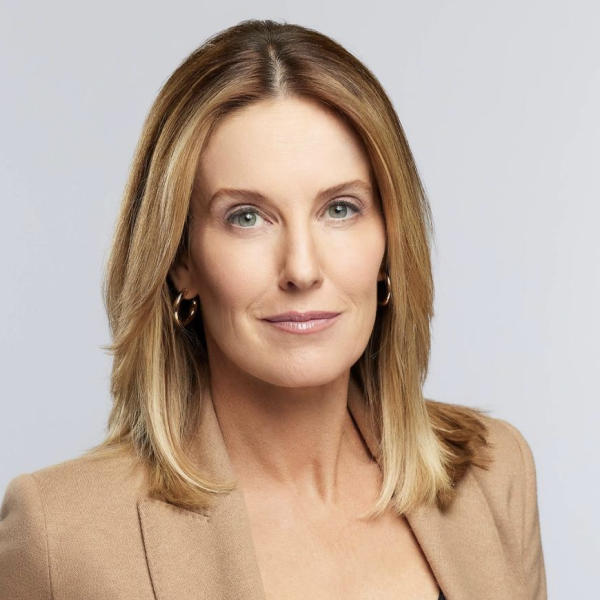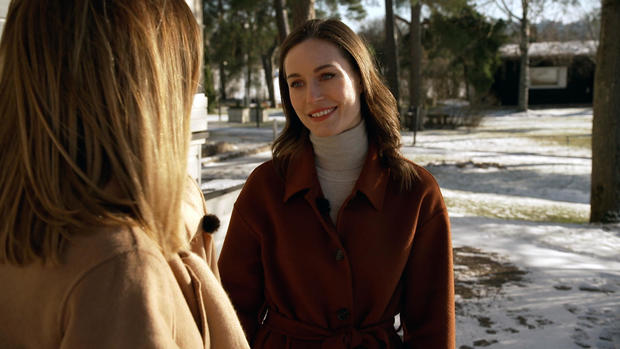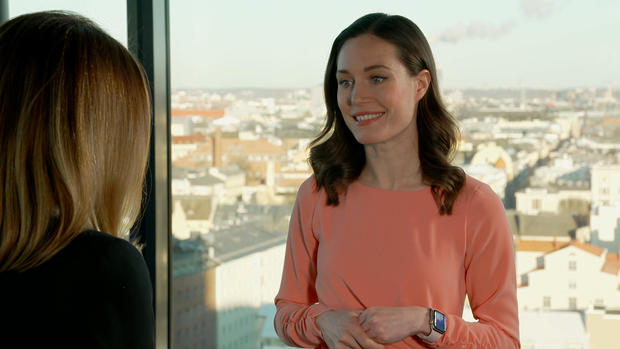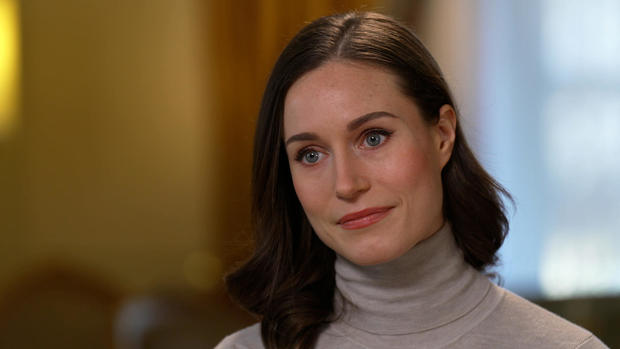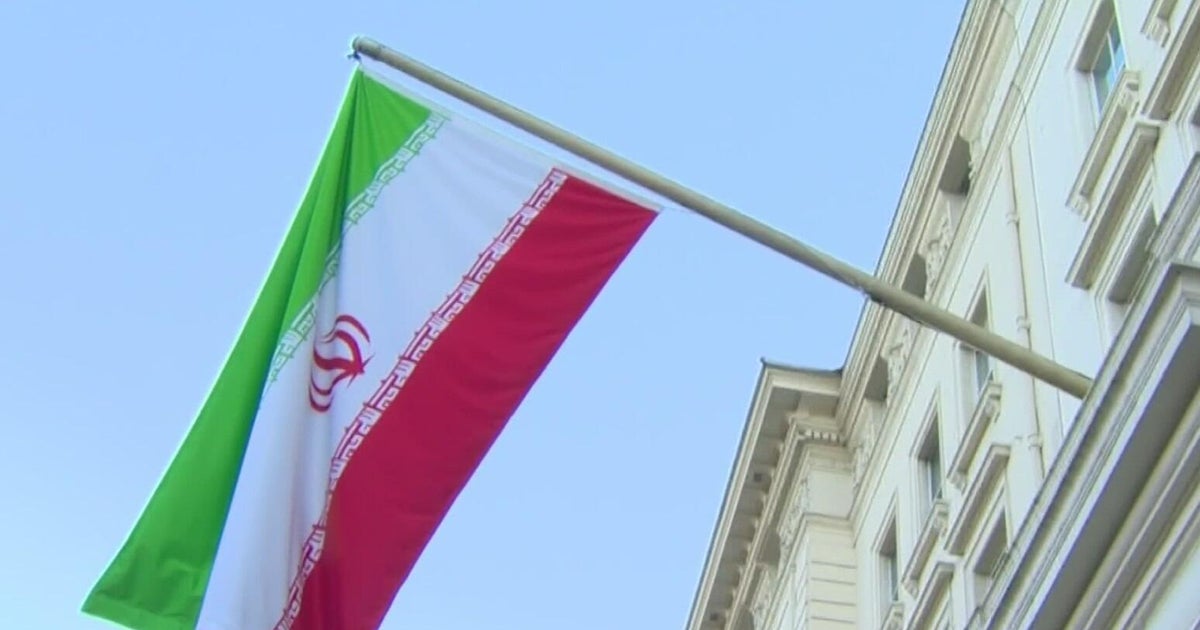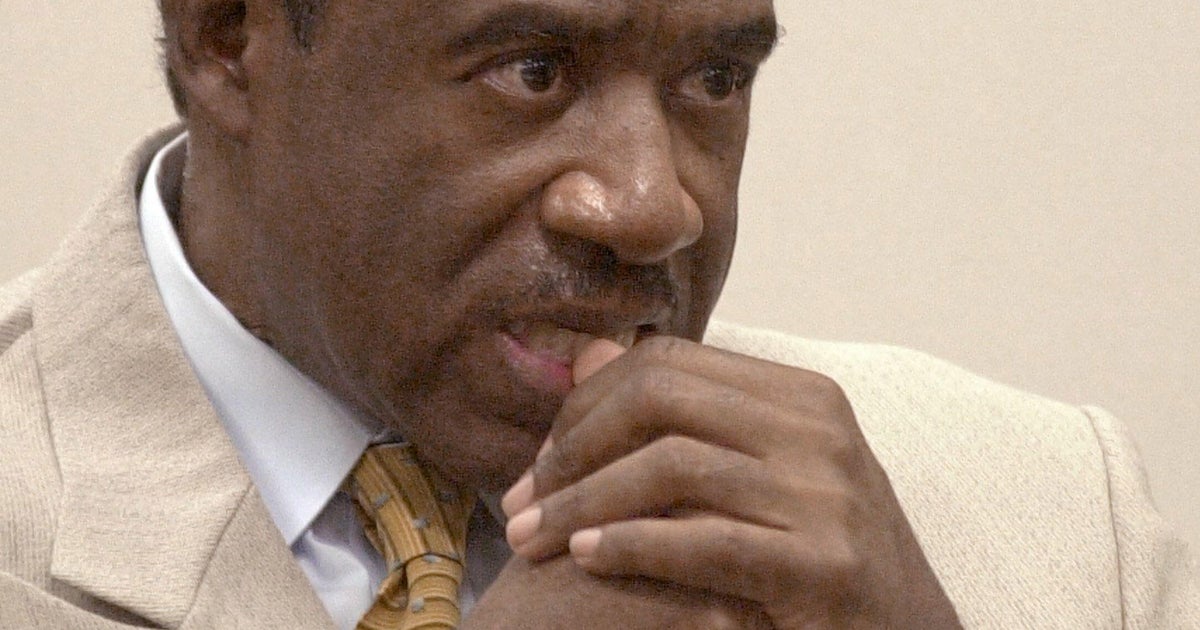Sanna Marin: Finland's 37-year-old prime minister
When Sanna Marin was elected prime minister of Finland in 2019, she made history. At 34-years-old, Marin became the youngest head of government in the world. But it wasn't the prime minister's political moves that caught the world's attention last summer. It was her dancing. You may recall the uproar after a video of the millennial prime minister partying with friends was leaked to the press.
Prime Minister Marin was already in the spotlight after Russia invaded Ukraine last year. Finland and Russia share a long border and a complicated history. In May, Prime Minister Marin announced Finland would apply for NATO membership for her country of five and a half million. A bold move that ended seven decades of Finnish neutrality and angered Russian President Vladimir Putin.
Sanna Marin: I don't think that Vladimir Putin is someone that you can reason with. I think his actions are very emotional and it's based on some kind of-- feeling of history and-- and greatness-- of Russia. They see Ukraine part of Russia, and they think that they have the right to attack another independent country.
Sharyn Alfonsi: Do you think that as we sit here right now that Russia poses a threat to Finland?
Sanna Marin: I think Russia poses a threat to all of Europe. They are attacking another country. They are killing civilians. They are demolishing infrastructure. Russia poses a threat to all of us, and that's why we have to make sure that Ukraine will win.
We met Sanna Marin at the prime minister's official residence in Helsinki. A quiet spot overlooking the frozen Baltic Sea.
Sanna Marin: We live upstairs there. But, of course, we also have our own home.
Sharyn Alfonsi: Oh, that you can--
Sanna Marin: Yeah.
Sharyn Alfonsi: be private?
Sanna Marin: On a few kilometers here.
Sharyn Alfonsi: OK
Moments of quiet have been few and far between, for Prime Minister Marin.
Who, over the last three years, has moved from one "once in a lifetime" crisis to another.
The most defining one, unfolding last year. Finland's 800-mile border with Russia is the longest of any European Union country.
Sharyn Alfonsi: How quickly after the invasion did you decide that Finland should join NATO?
Sanna Marin: I knew it right away. I was leaning-- in favor-- of NATO even before-- but the country wasn't ready. If you would have asked Finnish people or politicians in the parliament, "Should Finland join NATO?" before the war, majority would have said no. But after the war started, I knew immediately that this is the only way also for Finland to join the alliance--
Sharyn Alfonsi: When you say, "This is the only way," what do you mean by that?
Sanna Marin: Well, we are a next-door neighbor to Russia. And now, we have seen that Russia is attacking today-- their neighboring country. And we don't ever again want to see war-- in Finland. So we are asking ourselves, "What is the line that Russia wouldn't cross?" And that's the NATO line.
The invasion of Ukraine opened old scars for many finns. In 1939, Finland was invaded by the Soviet Union. which took about 10% of its territory. Since World War II, Finland has been militarily neutral. Its leaders, characterized as "bear whisperers" for their ability to stand up to Vladimir Putin but not provoke him." The president of Finland, who oversees foreign policy, reportedly last spoke to Putin in May. The same month Finland submitted its application to join NATO.
Sharyn Alfonsi: Putin has said if Finland joins NATO that Russia may be forced to take retaliatory steps. Do you view those words as a threat?
Sanna Marin: I think we should make our decisions not based-- by fear-- but what we really feel and think. And that's why we are joining NATO and hopefully we will be members of NATO very soon.
Sharyn Alfonsi: It's one thing to say, "We support Ukraine." It's a very different thing to go to Ukraine, to stand next to President Zelenskyy, which you did, which was a bold move. Why did you choose to do that?
Sanna Marin: Well, I think it's very important that we are showing solidarity in many ways-- by sending humanitarian aid, financial aid, military-- aid-- equipments, for example. And I think it sends very important message: that we are in it together. They are not alone; we are right beside them.
Taking sides is not what the Finns are known for, but Sanna Marin seems to enjoy breaking traditions. Marin, who was raised by her mother and her female partner in a working-class neighborhood, was the first in her family to graduate high school, and later, college. She was elected to city council at age 27. Soon, her contentious speeches were shared around Finland on YouTube.
In 2015, she was elected to parliament as a member of the left-leaning social democratic party. Four years later, at age 34, she was named the prime minister of Finland. The most powerful political position in the country.
Sharyn Alfonsi: Was that your intention?
Sanna Marin: I never really have focused about my own career. I-- I know that sounds (LAUGH) interesting, because I am in this position. But it's also coin-- coincidence that I became a prime minister.
Sharyn Alfonsi: Really? You can become prime minister by coincidence?
Sanna Marin: Well, I was the first vice-chair of our party when the last-- previous-- prime minister, Antti Rinne, had to resign, and then I had to step up.
The former prime minister submitted his resignation after he was accused of mishandling a postal strike. Marin was chosen by her party to fill his shoes.
Sanna Marin: But it wasn't something that I pursued. I wasn't sure (LAUGH) is it something that I personally want, or-- or am I capable of doing-- all of those things? But-- but I thought that, "If somebody else can do it, why not me?"
Marin, who was the mother of a newborn, with her now-husband, Markus Raikkonen, took office in December 2019, leading a historic coalition government in which all party leaders were women. A month later, the prime minister and her new cabinet were tested with a global pandemic.
Sharyn Alfonsi: That had to be just-- a crash course in leadership for you. What were those days like as you were figuring that out?
Sanna Marin: Everybody was like frozen in the beginning. "What should we do?" And then it really took-- political leadership-- from me but-- but al-- also-- many ministers that were-- in the center, in the middle-- of the crisis. So-- so it was also lonely. It-- it took cour-- courage-- a lot to do those very difficult choices that we weren't prepared before.
She's talking about when she ordered her country's borders and schools to be shut down in March of 2020 and promptly imposed a lockdown. Finland fared better than most of Europe, with lower infection rates and a quicker economic recovery. Prime Minister Marin was praised for her steady leadership and earned an 85% approval rating for her handling of the crisis. But as the pandemic came to an end, the public spotlight turned to the prime minister's private life.
In August, a series of private videos, including one of the prime minister dancing with friends, was leaked to the press and made international headlines. Critics accused her of embarrassing Finland, a country that prides itself on being stoic and reserved, and called for her to resign. Opponents demanded the prime minister take a drug test, which was negative. Marin held back tears as she defended her actions, saying: "I am a human, during these dark times, I too need some joy… light and fun." She added she'd never missed a day of work.
Sharyn Alfonsi: In your apology you said, "I'm a human." Do you think politicians are allowed to be human right now?
Sanna Marin: I think we need more politicians that are human-- that are normal human, also showing emotions, and also being themselves. Because they are representing ordinary people. Why cannot they be ordinary?
On social media, women around the world rushed to Marin's defense, posting videos of themselves dancing in solidarity.
Sanna Marin: Those videos weren't something that I wanted to be, like, leaked. Those-- those were private. It was private apartment and private videos. But, of course that didn't stop the media of-- of-- publishing them.
Sharyn Alfonsi: But the backlash. You know, Boris Johnson, there's videos of him dancing.
Sanna Marin: And there's videos a lot of people dancing.
Sharyn Alfonsi: And it wasn't an international incident.
Sanna Marin: Yeah.
Sharyn Alfonsi: Do you think it's because you were a woman and a young woman that you were criticized the way that you were criticized?
Sanna Marin: I think-- one of the reasons why it caused that kind of frenzy was the way I looked in the videos, the way I danced. And some people thought that's not appropriate, because there are-- these non-written rules still, unfortunately, the women-- especially women in-- in these kind of positions, that-- that you shouldn't be a human being, and that you shouldn't have every scope-- in your life, that you should only-- be put in certain kind of position, and that you should stay in that position. I don't care about those rules. I really don't. (CLAP) I'm living my life, and still dancing, and drinking occasionally, meeting my friends and-- and doing all kind of-- things (LAUGH) that are normal for my age people. I don't think that we should give that room-- for sexism or-- or-- misogyny. I think we should all just be ourselves and people can vote we live in democracy thats the good thing they can vote they can vote me out if they want.
Prime Minister Marin is up for re-election in April. We went with her to a party kick-off event earlier this month, that looked more like a Eurovision competition. The prime minister was introduced with a laser show befitting of a rock star.
Sharyn Alfonsi: How did you feel about today?
Sanna Marin: It's very good atmosphere people are so happy they are willing to make the campaign happen and really win the elections.
Polls show Marin is the most popular prime minister in Finland in 30 years, she manages her own Instagram account of more than a million followers, posing for photos at rock festivals and showing up on reality shows. But the prime minister is facing a tight race against the conservative "True Finns" party.
Sharyn Alfonsi: Voters in Europe have veered to the right with this anti-immigration sentiment. Does that concern you here in Finland?
Sanna Marin: I don't think that's answer to anything. I-- I really see the problems that we are facing also because our population is aging. We need more people to Finland. So I think the far right, when they are saying, "Don't come," they are really wrong, and it's very-- very dangerous policies also, because we cannot cope ourselves.
Sharyn Alfonsi: Why do you say it's dangerous?
Sanna Marin: Because if we would close our doors-- say no to people, then-- then we wouldn't have that economic growth, we wouldn't have new jobs-- we wouldn't have those prospects. And they have also said that their aim and goal is-- to get rid of European Union, to leave European Union.
Sharyn Alfonsi: What would that mean to Finland?
Sanna Marin: It would be a catastrophe to Finland if we would leave. It would be so stupid, I say bluntly. We have seen the problems with Brexit, and Great Britain is a bigger country than Finland. We are a small country. We have aggressive neighbor. There's no other choice and possibilities for us but to stay in European Union.
It is a defining moment for Finland and for Prime Minister Marin. Just after our visit, she appeared with other heads of state at the council of Europe and snapped a selfie with President Zelenskyy.
Sharyn Alfonsi: Your critics, said you were too young, you were inexperienced. You have since negotiated a global pandemic, an economic crisis. You've gone toe-to-toe with Vladimir Putin. What do you say to your critics now?
Sanna Marin: I don't focus on my critics. They will shout (LAUGH) whatever I do, You should focus on the issues that are on the table. And I think the most important thing is not to be afraid. I think too many people-- are living their lives-- to-- being too-- afraid. And I think also too many politicians are not doing the important decisions, because they are afraid.
Produced by Michael Rey. Associate producer, Tadd J. Lascari. Broadcast associate, Elizabeth Germino. Edited by Peter M. Berman.
